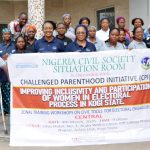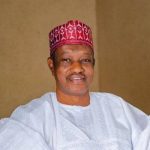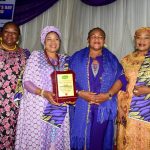Budget of Growth or Survival? Unpacking Nigeria’s Economic Priorities
By Dr. Aiyeku Olufemi Samuel
Governance Analyst | Development Economist | Policy Consultant | Strategic Development Advocate
Introduction: A Nation Budgeting on the Edge
Nigeria’s national budget has increasingly become a survival toolkit, rather than a blueprint for sustainable growth. With rising debt, declining revenue, inflationary pressure, and growing social demands, each fiscal cycle brings forth the question:
Are we budgeting to grow or budget just to survive another year?
This article aims to unpack the structure and intent behind Nigeria’s national budget especially in recent years highlighting the gaps between allocations and development priorities, the growing burden of debt servicing, and what must change for the budget to serve as a real tool for national transformation.
The Current Reality: What the Numbers Say
Let’s consider the 2024 National Budget as a case study.
Total Budget Size: ₦27.5 trillion
Recurrent Expenditure: ₦9.92 trillion (36%)
Debt Servicing: ₦8.25 trillion (30%)
Capital Expenditure: ₦8.7 trillion (31.6%)
Deficit: Over ₦9.18 trillion (to be financed through domestic and external borrowing)
Over 66% of the budget is dedicated to non-productive spending, with debt servicing and recurrent expenditure outpacing capital investments.
This structure raises urgent questions:
Can a country develop when it spends more on maintaining government than building infrastructure?
Is it sustainable to borrow to pay salaries, run ministries, and service old loans?
Debt Servicing: A Silent Economic Tsunami
Nigeria’s public debt stood at ₦97.3 trillion (\$108 billion) by Q1 of 2024 (DMO). Debt servicing now consumes more than 90% of actual revenue (IMF 2024 review), leaving little fiscal space for investment in:
Education, Healthcare, Infrastructure and Youth employment
“A nation that mortgages its tomorrow to survive today is heading for default fiscally and developmentally.”
~ Dr. Aiyeku Olufemi Samuel
The Misalignment: Budgeting vs. National Needs
While the government projects pro-growth rhetoric, budgetary allocations tell another story.
Education received just 7.9% of the 2024 budget, far below the UNESCO-recommended 15–20%.
Health received only 5.1%, despite rising disease burdens and brain drain in the medical sector.
Agriculture, the largest employer of labour in rural Nigeria, received less than 2%a gross underinvestment in food security.
Meanwhile, defence and recurrent costs continue to climb, indicating a budget tilted toward bureaucracy and survival, not productivity and reform.
Key Challenges
• Revenue Constraints
Heavy reliance on oil revenue makes the budget vulnerable to global price shocks and production issues.
• Excessive Debt Dependency
Over 90% of revenue goes into debt servicing an unsustainable model that weakens the future.
• Poor Budget Implementation
Historically, capital budget implementation lingers below 60%, due to bureaucratic delays and corruption.
• Political Budgeting
Line items often serve political patronage or appeasement, rather than real developmental priorities.
Rhetorical Reflections
Why does it take billions to maintain a National Assembly while thousands of schools lack blackboards?
Why do Ministries spend more on “personnel and overhead” than on innovation or productivity?
Is it truly a people’s budget if it does not reflect the people’s most pressing needs?
What Should Be Done? (Recommendations)
• Rebalance the Budget
Prioritize capital expenditure in sectors like infrastructure, manufacturing, education, and tech innovation. Nigeria must invest, not just spend.
• Expand Non-Oil Revenue Base
Improve tax collection efficiency, close leakages, and promote formalization of the 60%+ informal sector to widen revenue generation.
• Adopt Zero-Based Budgeting (ZBB)
Stop carrying over bloated, ineffective programs. Let every budget line justify its inclusion each year, based on impact and necessity.
• Cut Cost of Governance
Review and reduce the number of MDAs, harmonize redundant agencies, and introduce productivity-based salary structures.
• Link Budget to National Development Plans
Synchronize budgeting with long-term visions like the National Development Plan 2021–2025, SDGs, and state-level economic blueprints.
• Increase Citizens’ Participation
Engage citizens through participatory budgeting platforms, town halls, and online tools to align national budgets with grassroots needs.
“A budget is not just numbers on a spreadsheet. It is a moral document that reflects who and what a country values.” – Joe Biden
Conclusion: From Spending to Strategizing
Nigeria’s national budget must evolve from being a survival ledger to a strategic tool for inclusive growth. This means embracing transparency, accountability, and innovation in both planning and implementation.
We must move from yearly rituals of projections and deficit financing to people-centered, priority-driven budgeting that builds infrastructure, educates the next generation, empowers youth, and secures the future.
Because if we keep budgeting the same way, we will keep living the same way on the edge, dependent, and underdeveloped.
Let’s budget for growth. Not just for survival.
Dr. Aiyeku Olufemi Samuel
Co-Founder & Lead Consultant, Global Human Capital & Energy Management Limited
Governance Analyst | Development Economist | Policy Consultant | Strategic Development Advocate












